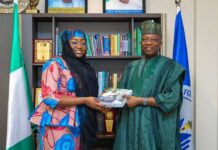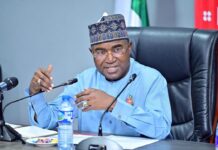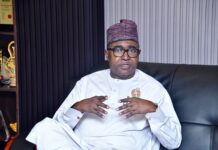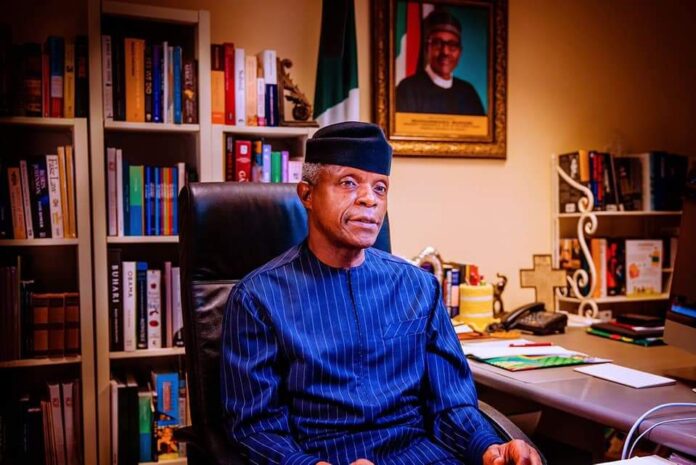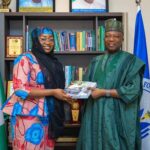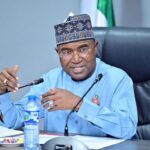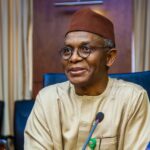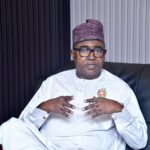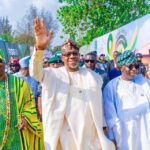- VP launches SDGs 3&4 independent evaluation document
- Says, goals align with FG’s desire to lift 100 million out of poverty in a decade
Determined to improve effective implementation of the Sustainable Development Goals (SDGs) in Nigeria, the Federal Government will leverage existing institutional framework to promote stronger partnerships and synergies among stakeholders, according to Vice President Yemi Osinbajo, SAN.
Prof. Osinbajo stated this in his remarks delivered virtually at the launch of the independent evaluation of the Sustainable Development Goals (SDGs) 3 and 4 in Nigeria.
The SDG-3 prioritizes ‘Quality health and well-being for all’, while SDG-4 focuses on ‘Qualitative & inclusive education and life-long learning for all’.
The Vice President said Nigeria has a suitable institutional framework, and “the Federal Government will continue to promote strong partnerships and synergies among its Ministries, Department and Agencies (MDAs) and development partners for a coordinated implementation of the SDGs.”
According to him, “these strategic evaluations reinforce the evidence for improving health and education outcomes in Nigeria and highlight how all stakeholders – government, development partners and civil society can best address systemic gaps and challenges.
“This Official launch comes with a responsibility for us to intentionally use the key findings of the two evaluations to strengthen policies that support the achievement of the SDGs.”
Referencing government’s efforts in ensuring attainment of the goals, the VP noted that “achieving inclusive sustainable development is an objective that aligns closely with our government’s desire to bring 100 million people out of poverty in 10 years.
“It is for this reason that the Federal Government of Nigeria established a number of ambitious programmes to support the acceleration of the achievement of the SDGs.
“More positively, the National Home-Grown School Feeding Programme (NHGSFP) helped increase school enrolment and slight improvement in learning outcomes.”
Speaking about the outcomes of the evaluation, the Vice President said “on SDG-3 ‘Quality Health and Well-being for all’, the report notes that Nigeria has a suitable institutional framework, key among them include the Basic Health Care Provision Fund and the National Health Insurance Act – both of which address health financing as a means of improving access to care.
“On SDG-4 ‘Qualitative and Inclusive Education and lifelong learning for all’, the report noted that education sector policies and strategies, both at the Federal and State levels are aligned with SDG-4.1 target, particularly in the formulation of the plans.”
While noting some loopholes in the implementation of the SDG-3, Prof. Osinbajo said stakeholders must synergise to “create a self-sustaining financial architecture, universal health coverage, improved clinical governance and a harmonious health workforce – all which should prepare us for the challenges of the 21st century.
“This must be accompanied by strengthening accountability mechanisms at the level of the state governments to improve resource mobilization,” the VP added.
In resolving challenges in implementation of Goal 4, the VP said “transparency around education budgeting and spending needs to improve. Similarly, governance issues at the Federal, State and Local governments remain at the heart of education provisioning in Nigeria.”
In her remarks, the Senior Special Assistant to the President on SDGs, Princess Adejoke Orelope-Adefulire, re-affirmed Nigeria’s commitment to the successful implementation of the SDGs, noting that “effective implementation requires periodic evaluation to ensure progress measurement, generate knowledge and inform policy shift.”
Dignitaries present at the event included the representatives of State Governors, Federal Ministers, and the United Nations Deputy Secretary General, Ms. Amina Mohammed who delivered her remarks virtually.
Other officials at the launch were the United Nations Resident and Humanitarian Coordinator for Nigeria, Mr. Matthias Schmale, the representative of UNICEF, and heads of government agencies and departments, among others.






